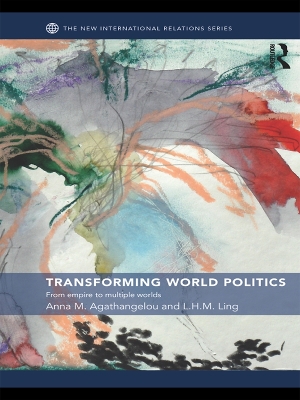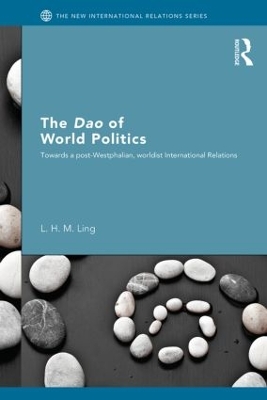New International Relations
2 total works
The authors of this pioneering work articulate worldism as an alternative approach to world politics. It intertwines non-Western and Western traditions by drawing on Marxist, postcolonial, feminist and critical security approaches with Greek and Chinese theories of politics, broadly defined. The authors contend that contemporary world politics cannot be understood outside the legacies of these multiple worlds, including axes of power configured by gender, race, class, and nationality, which are themselves linked to earlier histories of colonizations and their contemporary formations. With fiction and poetry as exploratory methods, the authors build on their ‘multiple worlds’ approach to consider different sites of world politics, arguing that a truly emancipatory understanding of world politics requires more than just a shift in ways of thinking; above all, it requires a shift in ways of being.
Transforming World Politics will be of vital interest to students and scholars of International Relations, Political Science, Postcolonial Studies, Social Theory, Women's Studies, Asian Studies, European Union and Mediterranean Studies, and Security Studies.
This book draws on Daoist yin/yang dialectics to move world politics from the current stasis of hegemony, hierarchy, and violence to a more balanced engagement with parity, fluidity, and ethics.
The author theorizes that we may develop a richer, more representative approach towards sustainable and democratic governance by offering a non-Western alternative to hegemonic debates in IR. The book presents the story of world politics by integrating folk tales and popular culture with policy analysis. It does not exclude current models of liberal internationalism but rather brackets them for another day, another purpose. The deconstruction of IR as a singular unifying school of thought through the lens of a non-Westphalian analytic shows a unique perspective on the forces that drive and shape world politics. This book suggests new ways to articulate and act so that global politics is more inclusive and less coercive. Only then, the book claims, could IR realize what the dao has always stood for: a world of compassion and care.
The Dao of World Politics bridges the humanities and social sciences, and will be of interest to scholars and students of the global/international, as well as policymakers and activists of the local/domestic.

